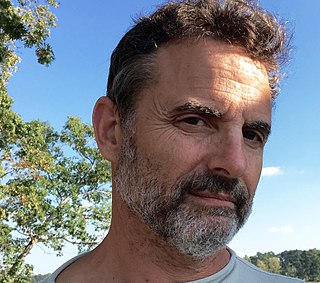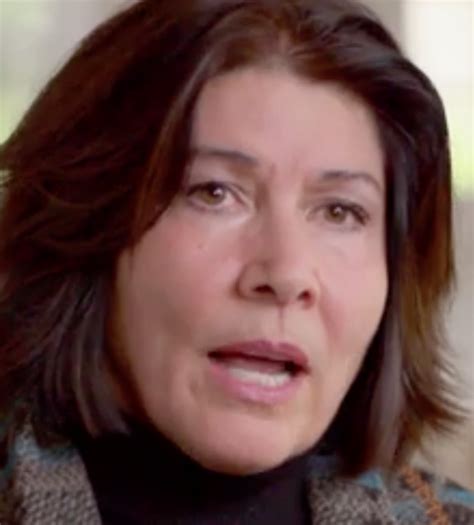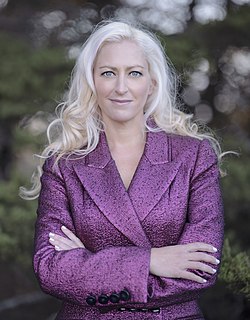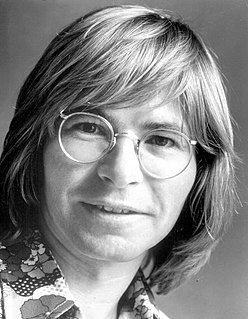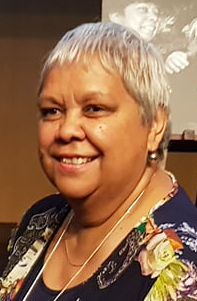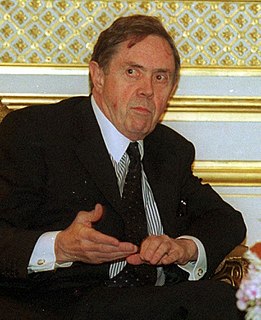A Quote by Arundhati Roy
To annihilate indigenous populations eventually paves the way to our own annihilation. They are the only people who practice sustainable living. We think they are relics of the past, but they may be the gatekeepers to our future.
Related Quotes
We must pay close attention to those with another imagination: an imagination outside of capitalism, as well as communism. We will soon have to admit that those people, like the millions of indigenous people fighting to prevent the takeover of their lands and the destruction of their environment - the people who still know the secrets of sustainable living - are not relics of the past, but the guides to our future.
We preach and practice brotherhood — not only of man but of all living beings — not on Sundays only but on all the days of the week. We believe in the law of universal justice — that our present condition is the result of our past actions and that we are not subjected to the freaks of an irresponsible governor, who is prosecutor and judge at the same time; we depend for our salvation on our own acts and deeds and not on the sacrificial death of an attorney.
How to avoid cliche at the root of conception? Practice sincerity. If we've come by ... material honestly, through our own personal experience or imagination, we may rightly claim it as our own. ... The way to make material your own is to look for it in yourself. ... It should be a story that only you can tell, as only you can tell it.
Let each of us examine his thoughts; he will find them wholly concerned with the past or the future. We almost never think of the present, and if we do think of it, it is only to see what light is throws on our plans for the future. The present is never our end. The past and the present are our means, the future alone our end. Thus we never actually live, but hope to live, and since we are always planning how to be happy, it is inevitable that we should never be so.
In every Indigenous community I've been in, they absolutely do want community infrastructure and they do want development, but they want it on their own terms. They want to be able to use their national resources and their assets in a way that protects and sustains them. Our territories are our wealth, the major assets we have. And Indigenous people use and steward this property so that they can achieve and maintain a livelihood, and achieve and maintain that same livelihood for future generations.
Prayer provides an opportunity to remind oneself of how one should be living, our responsibilities to others, our own failings, and our relative good fortune, should we have it. This is, I think, a pretty worthwhile practice and it is not something you can only do if you believe you are talking to an unseen creator.
I'm so grateful for Living the Questions. These progressive voices offer less rigid and more expansive approaches to Christian faith, and make room for people who practice critical thinking and question the gatekeepers. They help us see that questioning the gatekeepers is exactly what Jesus was all about.
It's a bit counter-intuitive to think about the future in terms of the past. But...I've learned an important trick: to develop foresight, you need to practice hindsight. Technologies, cultures, and climates may change, but our basic human needs and desires - to survive, to care for our families, and to lead happy, purposeful lives - remain the same.' p 5
I suppose that's a question most often asked of me by people who would like to make a positive contribution towards a sustainable future and a healthy environment. There are so many things that need to be done that sometimes it seems overwhelming. I try to remind everyone that no one person has to do it all but if each one of us follows our heart and our own inclinations we will find the small things that we can do, and together we will come up with enough to create a sustainable future and a healthy environment.
What you think of as they past is a memory trace, stored in the mind, of a former Now. When you remember the past, you reactivate a memory trace -- and you do so now. The future is an imagined Now, a projection of the mind. When the future comes, it comes as the Now. When you think about the future, you do it now. Past and future obviously have no reality of their own. Just as the moon has no light of its own, but can only reflect the light of the sun, so are past and future only pale reflections of the light, power, and reality of the eternal present. Their reality is "borrowed" from the Now.
'Sustainable Development' is an oxymoron. 'Development' in all it's senses entails expansion and wanting more. Continual expansion and wanting more are unsustainable. Globally we are approaching the point when the only sustainable way forward is to want less. Indeed, the choice element may be removed from us and we will just have to have less. In the meantime we still have some choices about how to influence our future
If history is to be creative, to anticipate a possible future without denying the past, it should, I believe, emphasize new possibilities by disclosing those hidden episodes of the past when, even if in brief flashes, people showed their ability to resist, to join together, occasionally to win. I am supposing, or perhaps only hoping, that our future may be found in the past's fugitive movements of compassion rather than in its solid centuries of warfare.
Our future may lie beyond our vision, but it is not completely beyond our control. It is the shaping impulse of America that neither fate nor nature nor the irresistible tides of history, but the work of our own hands, matched to reason and principle, that will determine our destiny. There is pride in that, even arrogance, but there is also experience and truth. In any event, it is the only way we can live.
As people who are women, who are Indigenous and live on Indigenous lands, we know, and this is something I understand the older I get, that they don't visit the same way the postman may visit but they do visit. They visit in ways that our modern society often disregards and considers immaterial or unreal.


